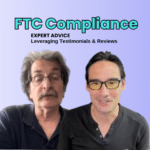
Ever wondered how to extract those powerful, convincing testimonials from your clients? You’re not alone. Testimonials can be the secret weapon that tips the scale in your favor, but getting them isn’t always straightforward. You’ve got to ask the right testimonial questions – check out our Testimonial Question Builder
Testimonial Question Builder
Key Takeaways
Good testimonial questions play a key role in establishing credibility and highlighting the benefits of your product or service.
Different questions can serve various purposes such as uncovering customer benefits, gauging customer experience, and overcoming consumers’ concerns.
Testimonial questions are most effective when they chronicle a customer’s journey from initially facing a problem, and finding the solution (your product/service), to finally achieving success.
Quantity doesn’t equate to a quality testimonial. The key lies in asking a few well-crafted, concise, and direct questions that can provide comprehensive feedback.
Prior preparation, asking open-ended questions focusing on specific benefits, and encouraging detailed answers yield compelling testimonials.
Importance of Good Testimonial Questions
The importance of crafting thoughtful testimonial questions lies in their ability to enhance credibility, gather valuable feedback, and highlight benefits. These questions uncover your customers’ real-life experiences which distinguish your offerings in the competitive market. Testimonials, especially through video marketing strategies, portray your brand as trustworthy, strengthening your standing as a reliable service or product provider.
Different Types and Their Uses
Testimonial questions come down to how each one is used to extract value. With the right set of questions, you can boost your video marketing strategy and establish solid social proof.
Questions for Highlighting Benefits
The first type of question is used to reveal benefits. This kind of question aims to uncover the role your product or service played in bringing about changes in your customers’ lives.
Ask your customer, “In what specific ways has our product improved your day-to-day tasks?”. This prompts the satisfied customer to describe concrete, relatable benefits they’ve experienced, painting a vivid image of potential gains for prospective clients.
Questions for Gauging Customer Experience
The next class of questions is to gauge customer experience. By asking, “Can you describe your overall experience with our service?”, you nudge your customers to relay their journey. These are used to shine a light on your brand and all-round customer service. Remember, a glowing review encapsulating a fantastic end-to-end experience can be a potent weapon for your business.
Questions for Overcoming Concerns
Finally, we have those insightful questions that work to unmask and address potential concerns or objections future clients might have. By asking, “What concerns did you have before using our product, and how were they addressed?”, you give a voice to apprehensions that are often silently held by prospects. Here, customer testimonials serve as evidence that fears were conquered, adding an extra layer of trust to sway potential customers.
Crafting Effective Testimonial Questions
Testimonial questions, when well-crafted, serve as potent tools for gauging the effectiveness of your product or service. They not only provide insight into customer perception but can enhance your video marketing strategy. This technique enhances social proof and paints a vivid picture of satisfied customers. Let’s investigate into crafting testimonial questions that storybook a customer journey, progressing from the initial problem to the ultimate success.
1. Initiate with the Problem
Begin your narrative by pinpointing both the external and internal problems faced by your customer. Create relatable scenarios, illuminating the issues potential customers might encounter. Use probing questions such as:
-
“What obstacles were you grappling with before you discovered our product/service?”
-
“In the absence of our solution, what kind of problems were you confronted with?”
-
“Could you explain your predicament before acquiring/joining [our product/service]?”
These queries put light on the initial state of the problem that your product or service was summoned to resolve.
2. Transition to the Solution
Transitioning from the problem, steer the conversation towards the solution. Here, your objective is to uncover customer experiences related to your product or service that stood out amidst other options. Ask something along the lines of:
-
“What attributes of our offering distinguished it from other alternatives?”
-
“How did you first come across our product/service?”
-
“Which aspect of our service appealed to you the most?”
These testimonials pivot the discussion towards the product or service, revealing how it helped in problem-solving.
3. End with Success
Finally, let the spotlight fall on the benefits and successes achieved through the implementation of your solutions. This part is pivotal as it highlights the enhanced situation of your customers post-utilizing your product or service. Some guiding questions could include:
-
“How has our product or service improved your situation/business/life?”
-
“Could you share a significant, tangible result directly linked to our product/service?”
-
“Would you recommend our product/service to others?”
Eventually, these testimonial questions not only garner success stories but portray a transformation journey, underlining the effectiveness of your product or service.
Why You Don’t Need to Ask Tons of Questions
In your journey to collecting convincing customer testimonials to cultivate social proof for your brand, it might be tempting to pose loads of questions to your satisfied customers. But, the key to gaining phenomenal customer feedback lies not in the quantity of questions but their quality.
Keep Questions Short and Sweet
The use of concise and clear queries is important in developing a video marketing strategy. Short, succinct queries are easier for customers to understand and respond to, resulting in more detailed and informed testimonials which effectively highlight your brand’s success. Including too many topics within a single question can distract and detract from the quality of the customer’s feedback. Therefore, focusing on one-short-sentence questions can help maintain effective communication with your customers.
Don’t Ask Too Many Questions
Customer feedback is important, but care should be taken not to burden or overwhelm customers with excessive questions. Over-questioning might lead to customer disengagement or generic answers. Each question should be purposeful and portray the customer’s journey from problem identification to the implementation of your solution. By minimizing and ensuring the relevancy of questions, detailed testimonials that underscore your brand’s strengths can be obtained. The principle, less is often more, applies in this case.
Quality Over Quantity Prevails
A clever marketing strategy leans into engaging with satisfied customers to generate social proof and advance the brand’s image. Remember, precision trumps prolixity when formulating testimonial inquiries. A well-thought-out question excels in eliciting rich, comprehensive responses painting your brand in a flattering light.
Keeping Things Short & Tight
Resist the urge to overwhelm customers with 100 questions during the feedback process. Yes, comprehensive customer reviews tantalize us with their data potential. Excess questions can feel burdensome, causing potential reviewers to shy away from participation.
Techniques for Asking Testimonial Questions
The creation of dynamic and effective testimonials often begins with the art of asking compelling testimonial questions. Fundamentally, these questions are crafted to foster engaging and informative dialogue from your satisfied customers.
Prepare Questions in Advance
Taking time to carefully construct your questions presents better results, with the potential to harvest a richer testimonial. It’s recommended to finalize and email these well-thought questions to the interviewee a few days before the actual interview session. This allowance for preparation gives your interviewees the chance to reflect, hence providing more substantial responses with potential rich dynamics and improved authenticity.
Ask Open-Ended Questions
Probing with open-ended questions allows for more robust dialogue, pushing past plain, basic answers. By doing so, you introduce the opportunity for the client to share unique experiences tied to your product or service. The more the clients elaborate on their personalized stories, the more potential your testimonial has of resonating with a wider audience.
Focus on Specific Benefits
It’s essential to direct your questions towards the specific aspects of the product or service that were deemed beneficial by the customer. This aids in creating a detailed narrative of the product’s effectiveness, in turn increasing potential credibility and relevance of the testimonial to your target audience.
Encourage Details
Sway the client to share specifics. Asking for instances such as percentages, stats or numbers, enlarges the authenticity and trustworthiness of the feedback. This detailed scrutiny gives your testimonial a concrete data-based foundation, adding immense value.
Final Thoughts
It’s not just popping random questions – the real magic is in asking the right ones. Be prepared and keep your questions open-ended, zooming in on specific benefits. Video testimonials? Keep it real, pal! Written ones? Just target the right folks and make it smooth sailing for ’em. At the end of the day, it’s about showcasing what your happy customers have to say which is a “secret” to your brand’s success! If this sounds like a lot, we can help – check out our video testimonial demo





